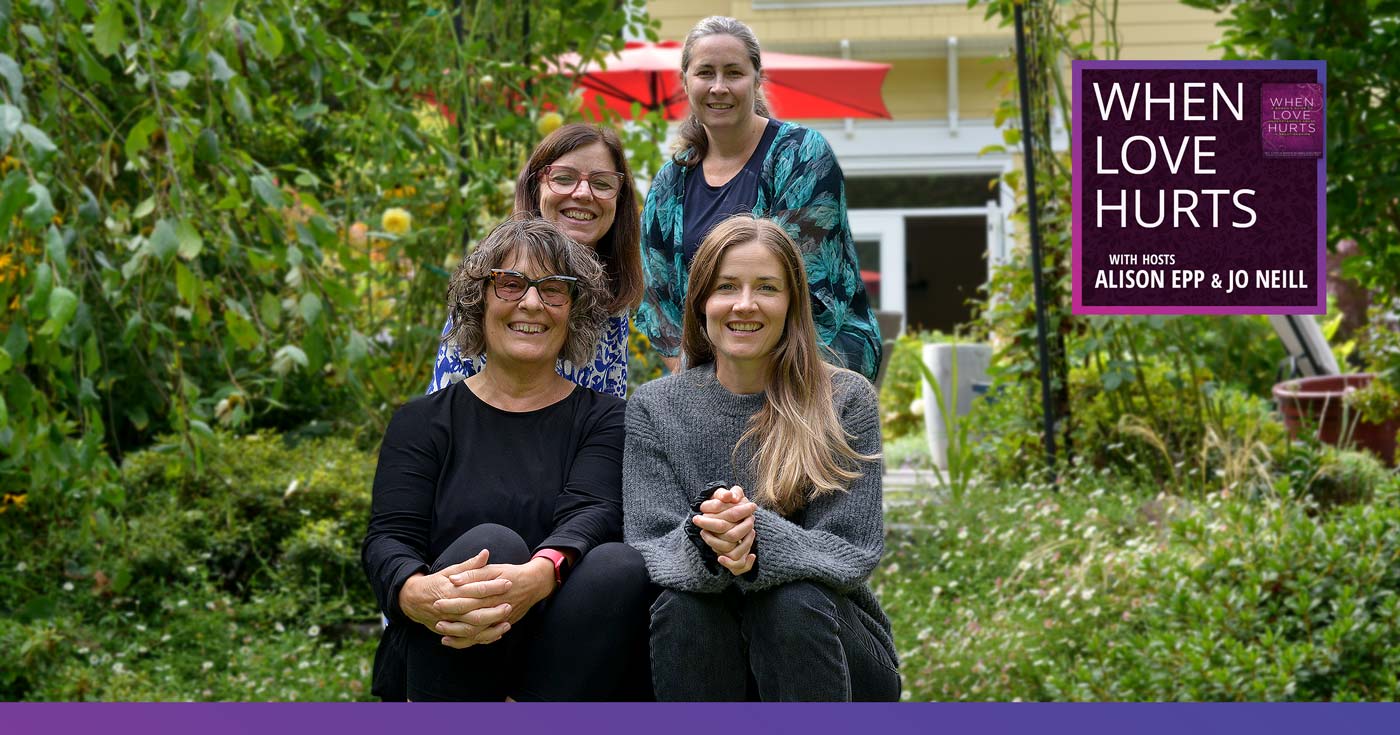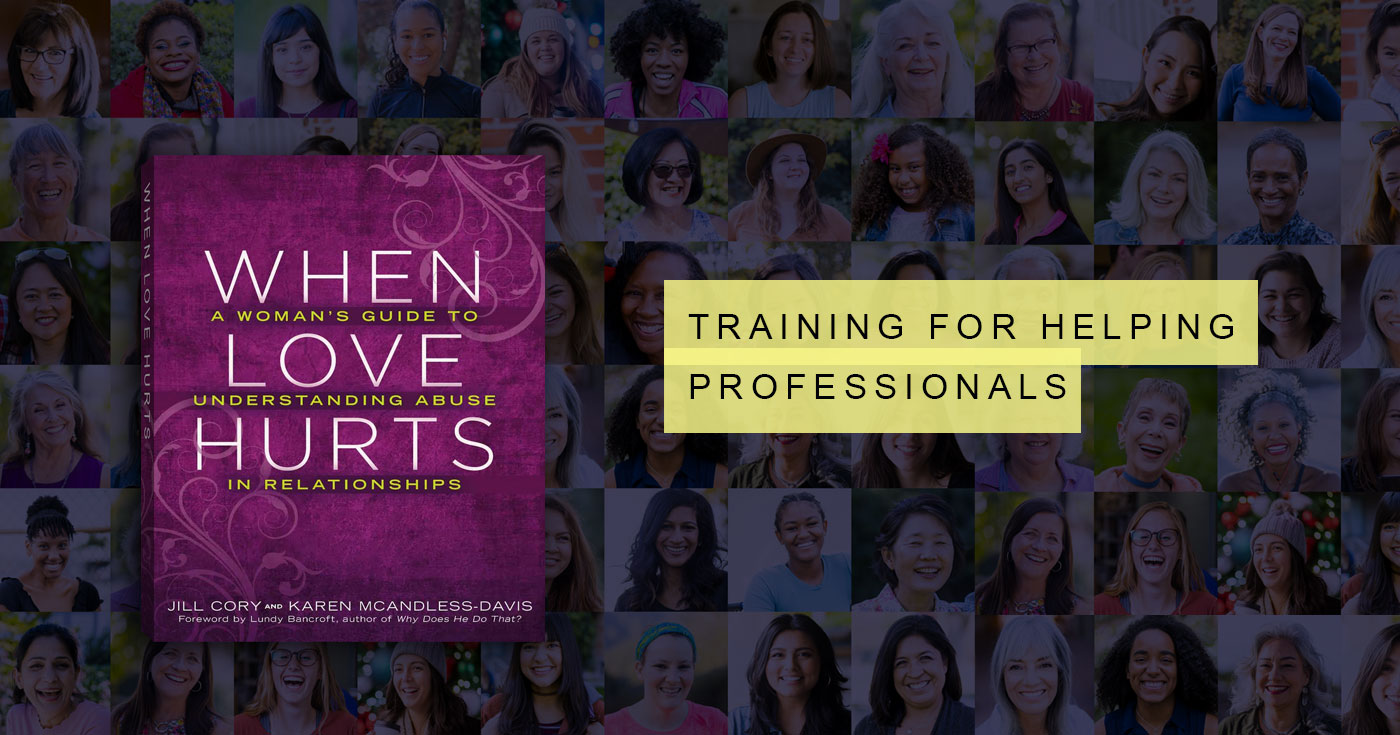Episode 1: Why are we here? Understanding the dominant discourse around woman abuse
In this first episode of When Love Hurts, we, Alison, Jo, Jill, and Karen, come together to begin a conversation we’ve been passionate about for decades. We created this podcast because we’ve seen far too many women bravely seek help only to be misunderstood, minimized, or given advice that leaves them more vulnerable. We want women, and the professionals who support them, to finally have access to clear, accurate information about abuse. When a woman hears her experience accurately named, it cuts through the fog of confusion and shame. That clarity is powerful, and we want it to be available to everyone.
Language Matters
We talk about why language matters. For years, we’ve seen terms like domestic violence, family violence, intimate partner violence, or high conflict used in ways that obscure what’s really happening. These phrases often hide who is harming whom and remove accountability from the abuser.
That’s why we use the words woman abuse: it’s clear, it’s accurate, and it lifts guilt and shame off women.
How we came to this work
Before diving deeper into the topic of dominant discourse, we each share our personal journeys into this work – how Jill began working in a women’s shelter in the 1980s and started to hear from both women and professionals the barriers to support, how Karen’s own experience in an abusive marriage led her to a support group and later to becoming an advocate, how Alison searched for someone who could finally name what she was experiencing and later becoming a counsellor to support others, and how Jo found support after feeling lost and unheard by professionals.
These stories reflect the barriers women face every day and the transformation that happens when someone truly hears and believes them.
Dominant discourse
A central focus of this episode is what we call the “dominant discourse”, the widespread cultural beliefs about abuse that blame women and excuse men. These beliefs shape how friends, family, courts, child protection, and even counselors respond to abuse. We unpack common misconceptions like “Why doesn’t she just leave?”, “Why was she attracted to an abuser?”, “Both partners have a part in the conflict,” and “It’s only abuse if he hits her.”
From our decades of work, we know that leaving can be the most dangerous time for a woman, that financial and legal systems trap women in countless ways, and that abuse is far more than physical violence. Psychological, financial, and coercive forms of control often cause the deepest wounds. And we push back strongly against the belief that there are specific characteristics or backgrounds of women that lead to them experiencing abuse. We know abuse can happen to any woman. Women don’t choose abuse, they choose a man who initially presents himself as caring and respectful, only later, after he has trapped her, revealing his need for power and control.
The harms of the dominant discourse
We also talk about how deeply the dominant discourse harms women. These beliefs influence court decisions, custody arrangements, child protection investigations, and counseling approaches. Too often, systems treat abuse as “conflict” and position women as partly responsible for the problem. This leads to unsafe recommendations, such as couple’s counseling or co-parenting expectations, that place women and children directly in harm’s way. In this podcast, we want to offer something different. We want women to be believed, every time! We want to name the abuse accurately. And we want to challenge the harmful beliefs that have shaped responses to abuse for generations.
What you will gain from this podcast
Throughout this season, we’ll be sharing tools, exercises, and frameworks grounded in what we’ve learned from thousands of women over the years. We trust women’s experiences as the deepest source of truth, and our goal is to bring that truth forward with compassion and clarity. We hope these conversations help you rethink what you’ve been told about abuse, understand your own experience more clearly, or support the women in your life with greater confidence.
When Love Hurts, the Podcast
Subscribe anywhere you listen to podcasts.
Season one of When Love Hurts is generously supported by MCC Canada. We are currently looking for sponsors for season two. If you would like to support this work, please contact us. And if our podcast is helpful, we would be grateful if you would like, share, and subscribe so that more women and professionals can find this content. Thank you!
Hosted by Jo Neill and Alison Epp. Produced by Jill Cory and Karen McAndless-Davis. Publishing support by Pink Sheep Media. Edited, and supported, by Lemon Productions.




Episode 8: Understanding the healing journey
In this episode, we explore the healing journey for women who have experienced abuse.
New Year’s greetings!
We’re excited to share that all eight episodes of the When Love Hurts Podcast are…
Episode 7: Mothering, post separation abuse, and the legal system
How men’s abuse profoundly impacts mothering and how that abuse so often continues after separation…
Episode 6: The harms of help
How services can repeat dynamics of abuse.
Episode 5: Why abusive men are abusive
In this episode, we take on the question women ask again and again: Why is…
Welcome to Episode 4: The impacts of abuse for women
We want to thank you for joining us for this heavy, but essential, conversation. Be…
Episode 3: Understanding the power and control wheel
In this episode of the When Love Hurts podcast, we unpack the realities of power…
Episode 2: Understanding the cycle of abuse
In this episode, we take a deeper look at the cycle of abuse, what it…